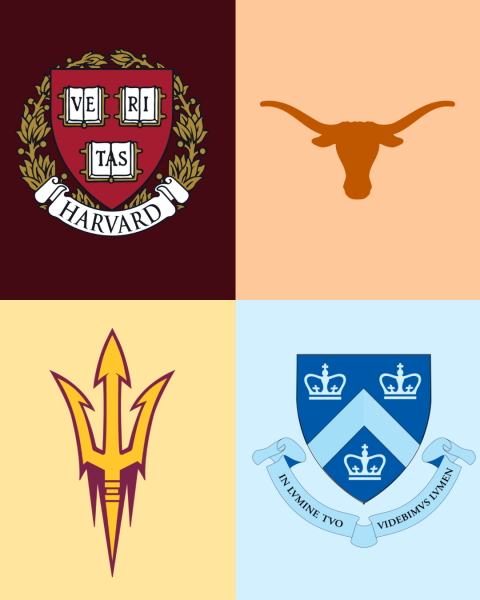
Recent federal policy changes have brought heightened scrutiny to international students through visa delays, stricter monitoring and unexpected denials.
While GCSU has not reported a significant drop in international student enrollment this semester, other schools around the nation, such as Harvard University and Arizona State University, have seen changes. The GCSU campus is therefore feeling the ripple effects of the national climate.
“The situation is definitely scary for all non-U.S. citizens, but it has not impacted my experience personally,” said Sam Samiya, a sophomore data science major. “This situation is not in our control, so all international students I know are focusing on what they can control: keeping up with their studies.”
According to the U.S. State Department, the new visa process includes expanded vetting and mandatory social media screenings for all F-1, M-1 and J-1 visa applicants.
F-1 visas are issued to academic students, M-1 visas to vocational students and J-1 visas to participants in cultural exchange programs. Applicants are now required to set their social media profiles to public before interviews. Officials defend the policy as necessary to protect national security, though universities nationwide have expressed concern about the effect on student enrollment.
At GCSU, the International Education Center (IEC) serves as the main resource for international students. The center offers advising, academic support and community programming.
“What I can say is that we are unsure of where enrollment will go in the future,” said Jason Wynn, assistant director of International Student and Scholar Services. “Many students, especially those here during their first year or semester, face homesickness and troubles with cultural adjustment. To offer support, we talk to students one-on-one, encourage them to become a part of the international club and pair them with families through our office.”
According to Wynn, Connections families are local families who volunteer to support international students, often building bonds that last well beyond their time at GCSU.
The IEC also provides immigration guidance for students on both J-1 and F-1 visas. Wynn detailed that the office keeps students informed of national policy changes, directs them to official resources such as the Study in the States website and offers personalized support to help them understand how the policies apply to their individual situations.
For many international students, that support has been crucial. Samiya described how the IEC, along with the International Club, helps students adjust to campus life and deal with uncertainty.
“We have our international office, also known as the Bone House, which has advisors who help us with any issues we face,” Samiya said. “The International Club is also helpful, as senior international students provide guidance that makes the transition much easier.”
For other GCSU students, the presence of international peers adds to the richness of campus life.
“I’ve had international students in my government classes, and they bring in perspectives about their own governments and systems,” said Mia Simmons, a sophomore political science major and history minor. “It brings a lot of diversity of thought, which is really beneficial.”
Despite fears about stricter visa enforcement, Simmons said she does not expect GCSU’s community to shrink and adds that the US will always have international students regardless of the guidelines.
Nationally, universities have warned that these policy shifts could discourage future international enrollment, with consequences for both higher education and the broader economy. At GCSU, faculty and students alike say the focus remains on protecting community and connection.
As federal rules continue to evolve, GCSU’s international community is adapting by leaning on each other and on the support offered by the university. Whether future restrictions will impact enrollment remains unclear, but for now, international students at GCSU are working to stay grounded in their studies.

